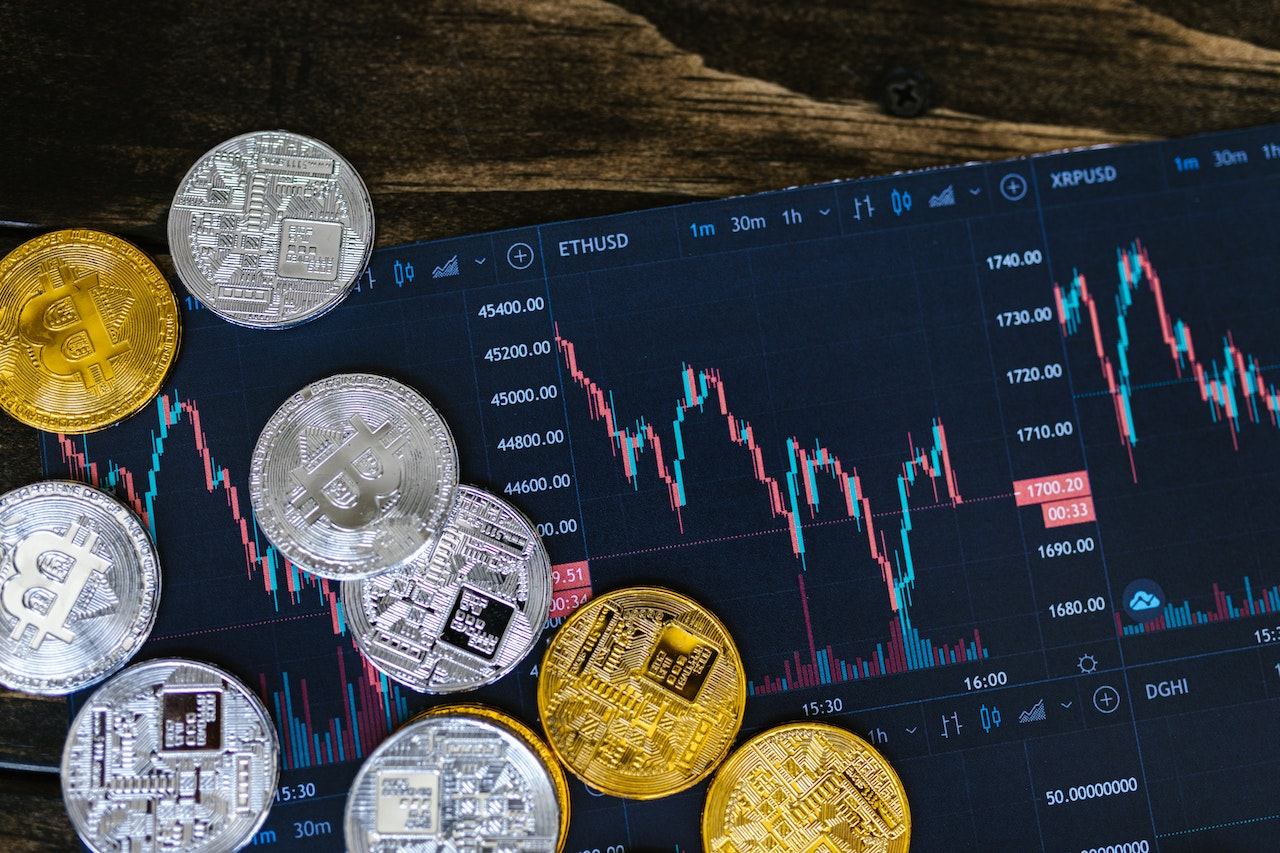As the saying goes, beauty is in the eyes of the beholder. Choosing the right cryptocurrency trading platform involves several factors, including privacy fees and the cryptocurrencies offered. The same should be stated in the context of how cryptocurrencies are stored and whether you can keep the cryptocurrency in an online wallet.
After knowing the best crypto exchanges for US residents, one is still left to choose one or two or even more from the list, what works best for them amongst the best.
10 ways to choose a cryptocurrency exchange
There are specific factors to consider when choosing your best crypto exchanges:
- Deposits and withdrawal method: There are various deposit and withdrawal methods used by crypto exchanges ranging from fiat to crypto gateways.
- Deposits and withdrawal limits: Some crypto exchanges have specific minimum and maximum amounts permitted to be deposited or withdrawn from the platform. Whilst some have durations for withdrawal. It’s important to check these before choosing a crypto exchange.
- Liquidity: Liquidity is the degree to which an asset can be quickly bought or sold, exchanges that trade large volumes have more liquidity. It’s important you check the liquidity of the exchange before going in to avoid getting stuck trying to sell off a position.
- Security: Checking how secure an exchange is is an important factor. Check to see if there are previous complaints of lost funds on the crypto exchange.
- Customer Support: As we’ve previously known DEXes do not have customer support but CEXes do. Some CEXes still do not pay much attention to the customers.
- Trading Tools: The kind of trading tools a crypto exchange offers shouldn’t be ignored. Trading tools allow for easy prediction of the markets and taking positions accordingly.
- User Interface: Since user funds are on the table, it’s important to go with interfaces users are comfortable on.
- Trading Fees & Exchange rates: Knowing how much one is charged for trading is as important as the trading itself. Crypto exchanges offer a range of fees from 0.015 percent to 2.99 percent.
- Loyalty programs & discounts: Check out for discounts, some crypto exchanges offer first-time deposit discounts or rewards. Trading some currency pairs on some exchanges offers a reduction in fees or extra rewards.
- Access: It’s necessary one see if an exchange allows users in their region. For instance, Binance.US doesn’t allow users for some parts of the US like Texas, New York, and some other locations.
What are Crypto Exchanges?
We’re getting ahead of our story, noting the urgency of your quest, but let’s backtrack a little. Choosing the best crypto exchanges in the US initially requires knowing the basic types of crypto exchanges, so let’s tackle that first.
Simply put, crypto exchanges are platforms that allow you to buy and sell digital assets such as cryptocurrencies. On these platforms, you can trade bitcoin or convert your fiat currency into another altcoin such as Ethereum, Solana, or any other cryptocurrency of your choice by paying some trading fees and exchange fees.
The three most common types of cryptocurrency exchanges include centralized exchanges and decentralized exchanges, plus a new one merging the characteristics and capabilities of both
- Centralized Exchanges (CEX)
- Decentralized Exchanges (DEX)
- Hybrid Exchanges
What is a Centralized Exchange (CEX)?
The term ‘centralized’ in centralized crypto exchange hints towards the fact that an intermediary or a third party is involved.
Like the example of a bank setup where a person puts his trust in a bank account for the money, both the buyers and sellers in the crypto exchange agree to put their trust in a third party to deal with and handle their investments, and crypto assets.
In fact, the users do not even fully own digital wallets on the exchange.
What are the reasons for advocating Centralized Exchanges?
Monitoring and security, along with protection for conducting the transactions entirely & safely are the main reasons why some cryptocurrency traders advocate for centralized exchanges. These crypto exchanges also provide active traders with the required and trusted trading partners by using their distributed network of users.
How do Centralized Crypto Exchanges function?

Crypto trading on centralized exchanges is sometimes a days-long lengthy process. As soon as someone decides to buy crypto or exchange Bitcoin or any other currency, he/she needs to approach centralized exchanges like Coinbase or Binance. These are the two best cryptocurrency exchanges. Other crypto exchanges include KuCoin, Kraken, BitYard, and eToro.
Identity verification is a major part of getting started on centralized crypto exchanges. The best crypto exchanges like Binance and Coinbase ask users to verify their identity before they trade crypto. This is crucial to prevent any criminal activities. Once the verification is done, the centralized crypto exchanges allow users to deposit fees through a debit card or wire transfer.
Funds can also be deposited as cryptocurrencies like Ethereum or Bitcoin. Please note that this process may sometimes take longer than expected (unlike truly decentralized exchanges).
Once the account is verified & funds are deposited, the crypto exchanges will show up the price according to the order book of people selling and buying at distinct amounts allowing users to make a transaction by paying off trading fees beforehand.
After a successful transaction, the crypto assets will be shown in your account. However, you do not technically hold these. It is because you have entrusted the central authority of the custodian for the chosen crypto exchange.
That is why any activity you do occurs within the centralized exchange. These exchanges store and monitor cryptocurrency in a digital wallet.
It ensures the safeguard of people’s holdings who might face loss in digital currency simply forgetting the key to the wallet.
However, the trading fee varies from platform to platform. While some trading platforms charge low trading fees, others may charge significantly higher trading fees.
Crypto traders usually prefer exchanges that offer a good selection of listed coins, low withdrawal fees, and secure trading services.
Advanced traders often use multiple exchanges for different coins and transfer all their crypto holdings into a cold wallet for added security.
Advantages of CEXes
- Intuitive User Interface
Centralized cryptocurrency exchanges often make it easy for beginner crypto investors to invest in digital assets. At the same time, they also advanced trading by offering tools for more experienced traders.
On the other hand, carrying out peer-to-peer transactions can be difficult. All that you have to do on centralized cryptocurrency exchanges is log into their accounts, deposit funds using fiat currency, and purchase their preferred coins.
Similarly, these cryptocurrency exchanges also make it very easy to sell cryptocurrency on the go.
- Reliability
Centralized cryptocurrency exchanges can be quite reliable. They often offer strong security so that the digital assets of users remain safe. Furthermore, users get to enjoy a high level of comfort as these exchanges provide an integrated crypto wallet for crypto transactions.
- Leveraging
This is one of the biggest benefits of centralized cryptocurrency exchanges. You can leverage your investment as these cryptocurrency exchanges allow margin trading. This means that crypto investors can enjoy high profits. However, they can also face greater losses.
Disadvantages of CEXes
- Security Risks
Regardless of high security, centralized cryptocurrency exchanges are always at risk of getting hacked or breach. Centralized cryptocurrency exchanges are backed up by companies that hold the funds of their customers.
Typically, most crypto exchanges like Binance and Coinbase hold billions of dollars worth of digital currencies, which makes them a prime target of cyber criminals and hackers.
For instance, Mt. Gox, one of the most popular cryptocurrency exchanges of all time ended up collapsing after losing digital currencies worth 850,000 bitcoins in a case of cyber-theft.
- High Transaction Fees
Trading fees on crypto transactions are yet another major concern with centralized cryptocurrency exchanges. Other than that, you can expect to pay other forms of crypto exchange fees such as inactivity fees, service charges, and a lot more.
Normally, centralized exchanges charge high trading fees in return for all the advanced trading services and ease that they offer to users.
- Fraud risk
Regardless of how legitimate a company is, centralized entities always carry an inherent risk of fraud. Cryptocurrency exchanges are no different in this regard.
Since these companies hold billions of dollars worth of digital assets, centralized exchanges can fail or encd up committing fraud. In either of these cases, users can get stripped of all their digital assets.
What is a Decentralized Exchange (DEX)?
Decentralized exchange is one of the three current types of crypto exchanges, namely decentralized finance or DEX, Centralized or CEX, and Hybrid exchange.
Unlike other businesses, it is a place where users can swap the desired crypto token with their peers without the involvement of any intermediary.
So, these crypto exchanges allow users to buy crypto securely without the hustle of signups and the exhausting wait for days. But, how does it all work?
Centralized and decentralized exchanges are related. To have an accurate understanding of a decentralized crypto exchange, one needs to know centralized exchanges sufficiently. For this purpose, we’ll quickly be reviewing the definition and functioning of centralized exchanges first.
How does trade work on Decentralized Exchange?

A decentralized crypto exchange dismisses the involvement of the third person (exchanges) in a centralized exchange and introduces a new notion to crypto exchanges.
Taking a different approach, it employs automatically executed smart controls for facilitating the trade of digital assets among individuals without taking hold of them in real life.
These crypto exchanges often pave the way for instantaneous trades to happen at the best prices. So, DEX is based on a non-custodial framework that puts you in charge of managing a digital wallet that you own and the private keys.
DEX trading without taking control of coins
Decentralized margin trading handles all of this intelligently with the help of effective mechanisms.
Order books, aggregations tools, and liquidity providers are the most well-known Defi mechanisms. Various decentralized platforms employ these mechanisms to facilitate trading.
- Order Books
Similar to a centralized crypto exchange, decentralized exchanges also operate on order books. However, its order books are entirely decentralized. For each digital asset, these order books put together all the currently available buy and sell offers.
The variation of the different prices reveals the credibility of the order book and the corresponding crypto market price. DEXs handle order books in two different ways.
- On-Chain order book:
In this, each transaction is noted onto a blockchain. It includes the request to buy crypto or deny a purchase in addition to the original price. This chain helps but can make the purchase more expensive and steady by putting everything on the blockchain.
- Off-Chain order book
It does not write each transaction on the blockchain. Instead, the off-chain order book only accesses the final transaction there. As all the other orders are not kept a record of, it can sometimes lead to a chain of security issues. However, it remains less costly and steady.

Some first-generation decentralized sites or apps that employ order books are Tomo DEX, dYdX, Binance DEX, Nash Exchange & Vitex.
- Swapping
Swaps are the instantaneous trades executed between the user’s digital wallet. These are the liquidity pool protocols used to find out the pricing of any asset. This process came to be known as a swap for its peer-to-peer and instantaneous nature.
2nd generation of decentralized exchanges uses liquidity pool protocols or works by swapping assets, i.e., tokens. Following are some of the dex platform in the market which uses swaps.
1.Uniswap
At Uniswap, automated market makers, one can swap any 2 Ethereum assets, be it a token, without any hindrance on the top of the fundamental liquidity pool. It allows a larger audience to easily buy and sell digital assets..
2. Dodo
It is also a liquidity pool. But unlike others, Dodo makes use of its algorithm of Proactive Market Maker to able to provide the required liquidity. Some other DEXs include Curve, SushiSwap, and Kyber.
- Exchange Aggregators
Decentralized crypto exchange with its dynamic approach employs various mechanisms and protocols. For instance, gnosis protocol. It provides increased autonomy and security.
However, their use is also observed to be the cause of disjointed liquidity over different DEX platforms. It discourages ring trades or institutional investors who are more inclined to buy and sell crypto in a larger trading volume.

To counter this problem, DEX aggregators successfully develop tools that merge asset liquidity pools for both types of crypto exchanges. Following are two crypto exchange aggregators.
1. DiversiFi
It results in higher liquidity across decentralized and as well as centralized crypto exchanges. DiverisFi employs Starware to remove the front running problem.
2. 1inch Exchange
It strengthens liquidity pools to ensure low slippage on orders based on large volumes by aggregating the liquidity of different decentralized exchanges. Ultimately, traders can buy and sell at the best possible best price on these crypto exchanges.
Advantages of DEXes

1. Privacy
It is one of the great boons for which people shift to decentralized exchanges. These crypto exchanges provide the required privacy as it does not take hold of the user’s tokens, unlike centralized exchanges.

2. Various Options
There are a lot of options that you can explore and make use of in the index market. These include trading token without involving any financial institution or even a bank account.

3. Decreased Risk
As you own the keys to your private wallets, you are at a lesser risk of hacks. Also, you can do cryptocurrency trading without any break, which is required in the maintenance span of a centralized crypto exchange.
Disadvantages of DEXes
1. Complications
Many of the decentralized exchanges require tokens of the Ethereum network to work like a looping exchange. The trader needs an extra step of conversions before they can trade. The trading fees, of course, are set by the market.
2. Only cryptocurrency assets
Decentralized exchanges are limited to only cryptocurrency assets. So, owning a cryptocurrency asset or token is crucial to be to use a decentralized exchange.
3. Lack of customer service
Decentralized exchanges do not have a central entity backing them up. This means that you will not find any customer support. If you run into issues, you will have to figure the solutions out yourself. In short, you are responsible for all your transactions. Also, decentralized cryptocurrency exchanges do not allow you to create a crypto exchange account. So, they do not offer customer service.
Top 10 crypto exchanges for US residents
| EXCHANGE | PROS | CON |
|---|---|---|
| Coinbase | Funds are privately insured in case of a cybersecurity breach Easy-to-use interface for beginners Has a fiat-to-crypto buying gateway with several payment options More than 80 currency pairs to choose to trade from. Allows minimum trades of $2 Allows all states of the United States of Ameria | High trading fees Lagging customer support service |
| Etoro | Easy-to-use interface for beginners Very safe for trading as it’s regulated by US regulatory body. Supports buying about 30 cryptocurrencies using fiat. Easy account opening. Demo account with $100,000 virtual money A feature to copy trades of professional traders | Limited to just 43 US states Despite having ETF and Forex features, only crypto trading is allowed for US residents. High trading fees |
| Crypto.com | Low trading fees Good security More than 150 currencies to trade Offers a visa card with 8 percent cash back on transactions Best for staking | Quite difficult to navigate Lagging customer support service. |
| Gemini | Available in all US states Secured against possible cybersecurity hacks Offers a large number of cryptocurrencies to trade. Covers several trading options | High trading fees Difficult to navigate |
| Kraken | Very low fees A large variety of cryptocurrencies to trade Offers several types of trading ranging from Futures trading, Forex trading to OTC, and much more | Very little learning materials High Instant buying fees. |
| Kucoin | Best for altcoin trading, a large variety of coins Low fees Good security Easy-to-use platform or beginners Loyalty program to earn KCS | Low liquidity |
| Binance | High trade volume A high number of digital currency pairs Numerous services to earn from Low transaction fees | Not available in all states of the US Tough KYC verification process Lagging customer support service. |
| Robinhood | Secured to trade Available in all states of the US Offers ETF, commission-free stocks, and options trading Low trading fees | Lagging customer support service. Few trading features |
| Uphold | User-friendly platform No hidden fees Several cryptocurrencies to trade Available in all states in the United States | less learning materials |
| Coinmama | Good customer support service User-friendly interface A great guide for trading | High trading fees Europeans are only allowed to sell bitcoin Limited features |
What are Hybrid Exchanges?
Hybrid exchanges are part of the upcoming crypto trading platform aimed at offering both worlds of tradeability and flexibility. These are intended by providing centralized exchanges with the more useful and liquidity advantages of decentralized exchanges as well as the security advantages of decentralized exchanges. Hybrid crypto exchanges provide high transaction rates and do not compromise user confidentiality, but still remain relatively new developments in cryptocurrencies. Eventually, we can find out if the business can thrive because of the costs, limited scalability, and limited assets. Examples: Nash, Qurrex, Eidoo, Legolas, and others.
Comparison of Exchange Fees
Crypto traders have an array of options to choose from when trading, but many exchanges hide fee structures in the fine print and confuse users with overlapping fee structures and discounts. Some generalizations can be observed from a survey of exchanges:
- Trading fees vary by more than an order of magnitude, from 0.1% to more than 1% on Coinbase and Gemini.
- Bibox, Binance, Coinspot, HitBTC, and Kucoin offered the lowest taker fee of the surveyed exchanges at 0.1%. Binance and Bibox offer even lower rates when paying with their exchange tokens.
- Most exchanges do not charge fees on deposits made via Bank ACH or direct cryptocurrency deposits, but may typically charge additional fees for purchases/deposits made via wire transfer or credit cards.
- Cryptocurrency withdrawal fees are typically limited to blockchain transaction costs, but these can vary considerably depending on the cryptocurrency.
Some of the most common fees charged by exchanges:
- Trading Fees
The primary source of revenue for exchanges. They are typically charged on both fiat-crypto trades as well as crypto-crypto trades.
- Deposit/Withdrawal Fees
Some exchanges charge fees for deposits and/or withdrawals. Deposit fees vary based on the type of deposit but are less common than withdrawal fees since exchanges want to incentivize users to fund their accounts. For cryptocurrency withdrawals, many exchanges limit fees to any blockchain transaction costs (usually a flat fee regardless of the amount withdrawn), but some will take an additional fee based on your country or the type of withdrawal (crypto vs fiat)
- Interest/Borrowing/Liquidation Fees
Some exchanges like Kraken, Poloniex, and Bitfinex offer crypto margin trading: the ability to borrow or synthetically borrow additional funds to increase your position and create leverage. These exchanges typically charge additional fees based on the amount borrowed on margin and an interest rate determined by the supply of funds available. Additionally, if your trade goes upside down and the position is liquidated you may be charged an additional fee.
- Market Makers & Volume Discounts
Many exchanges offer lower trading fees to “market makers”, traders placing limit orders instead of market orders, and high-volume traders to incentivize exchange liquidity
- Exchange Token Discounts
An increasingly popular approach is to discount exchange fees for users who purchase an exchange’s own cryptocurrency token. Several non-US exchanges such as Binance, Huobi, and Bibox have adopted this system to help incentivize investment into their tokens. These exchanges have elected to decrease the amount of the discount each year until phasing it out entirely in after four to five years
If you want more details about fees, take a look at the helpful table here.
Conclusion
Although centralized exchanges own the leading position in the market, the decentralized crypto exchange is also fast approaching people with its peculiar perks. While CEX is an authorized exchange type to buy and sell your tokens, DEX is a non-custodial trading site.
The choice between centralized or decentralized cryptocurrency exchanges primarily depends on the users and their preferences. Some crypto traders might prefer the user-friendliness and advanced futures trading tools offered by centralized exchanges.
On the other hand, some users may prefer the privacy and quick-swapping of digital assets offered by decentralized exchanges.
Most US residents don’t know where or which is the best Crypto exchange to buy cryptocurrencies from, in the euphoria of wanting to take a bite of crypto trading profits, they get stuck between strict regulations and obliviousness.
Against popular belief, for most US residents, the reason they’ve not invested in any of the cryptocurrencies is not that they’ve not heard of cryptocurrencies, nor is it because they lack the funds.
The reason ranges from not knowing the best crypto exchanges to not understanding how to buy them. Rumors of crypto exchanges being hacked are primary deterrents.
Always make sure to review the fee schedule at your preferred exchange and consider any applicable discounts for volume or usage in your calculation. When you are ready to trade, connect your exchange account to a coin tracker tool to be aware of the latest trading price.
Disclaimer. The information provided is not trading advice. Cryptopolitan.com holds no liability for any investments made based on the information provided on this page. We strongly recommend independent research and/or consultation with a qualified professional before making any investment decisions.





